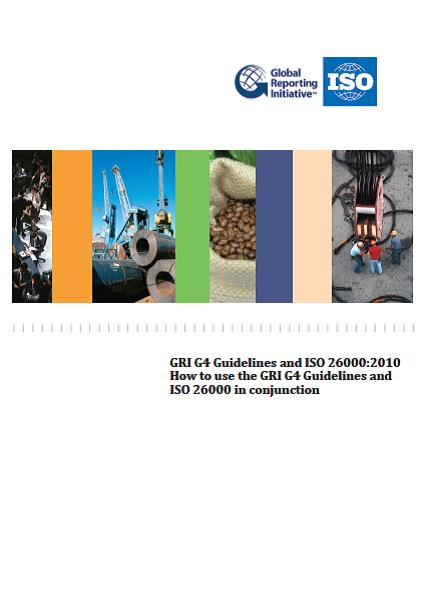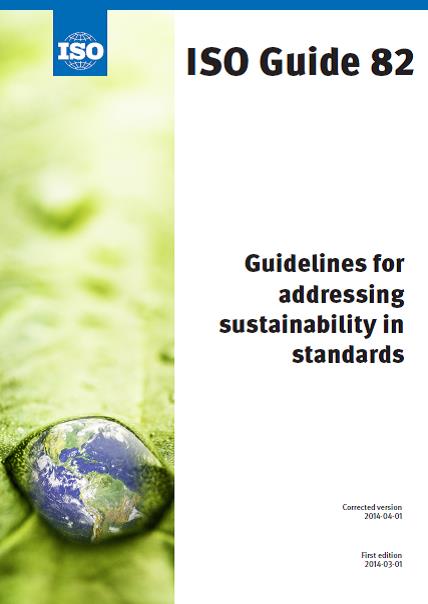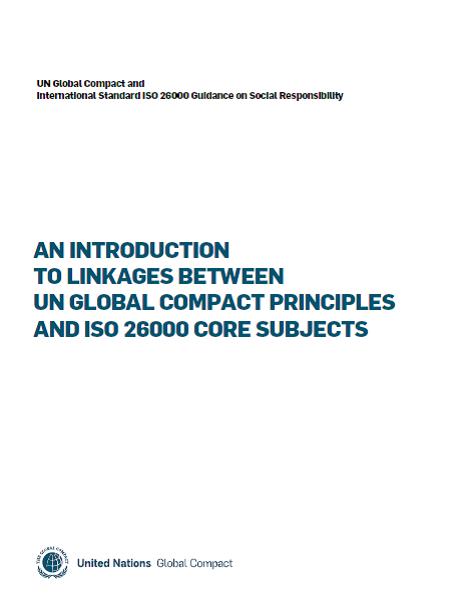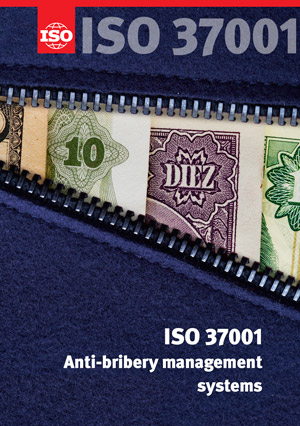GRI G4 Guidelines and ISO 26000:2010 How to use the GRI G4 Guidelines and ISO 26000 in conjunction
 |
This publication helps to relate the social responsibility guidance given in ISO 26000 to the reporting guidance provided by GRI. In particular, this publication provides crossreferences between the two documents, which can be useful for all organizations to take advantage of the synergies and complementarities of the two initiatives. To download the full publication, please either click on the left image or click here. |



